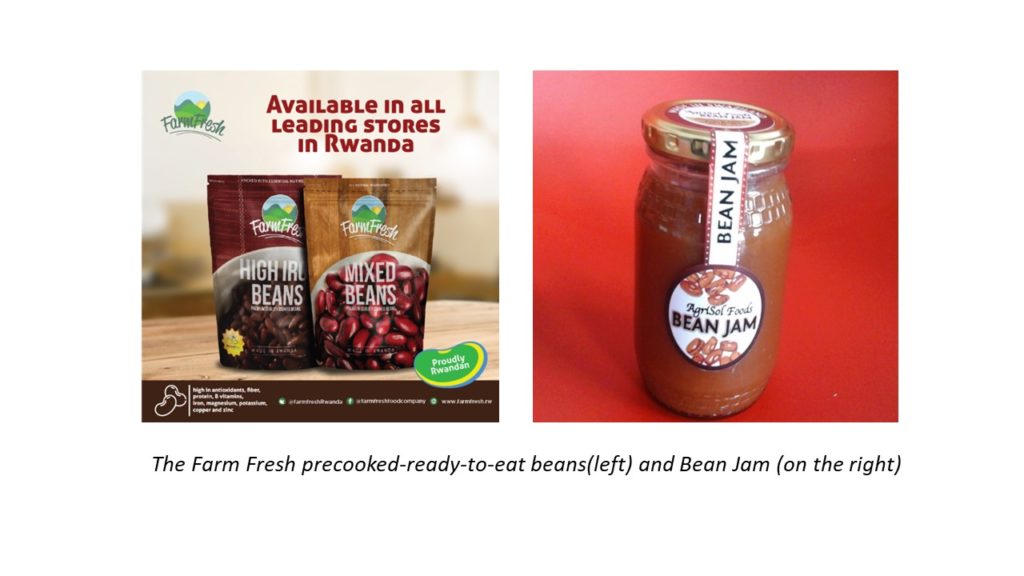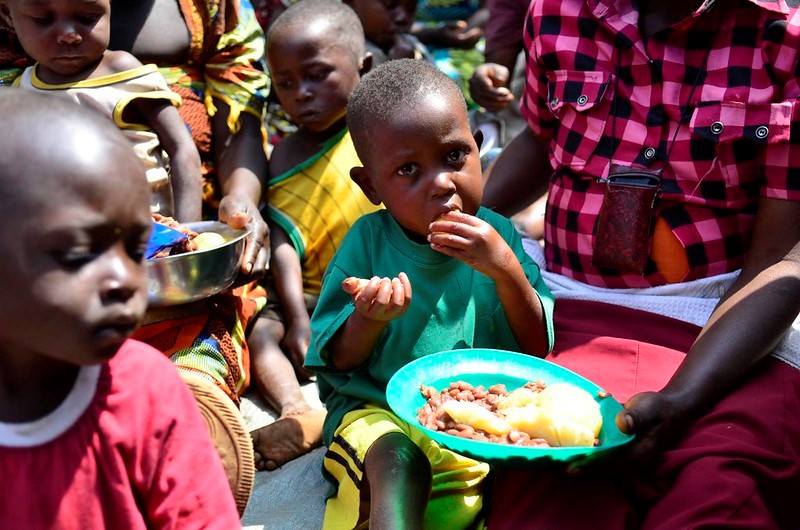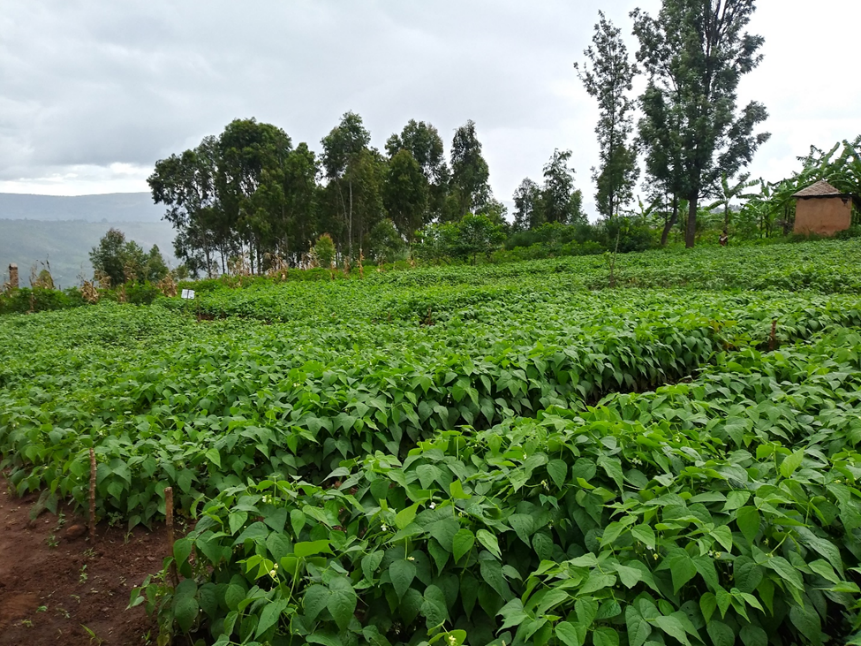by Patricia Onyango
Heard about bean jam? Precooked beans anyone? Beans are a powerful superfood. And thanks to the efforts of breeders, the crop has evolved from mere staple food to a nutritious commodity that also brings farmers higher income. Packed with protein, high in iron and zinc content, they also play an important part in the diet especially for children, improving mental health and boosting nutrition, and have a positive impact on the environment by fixing nitrogen in our soils.
It is clear that beans play a fundamental role in our sustainable future. For this reason, every year on the 10 February -globally – we celebrate World Pulses Day. Together with our partners, the Pan-Africa Bean Research Alliance (PABRA) celebrated World Pulses Day under the theme, ‘#lovepulses for healthy diets and planet’.
Jean Claude Rubyogo, the Alliance of Bioversity International & CIAT (Alliance) – Bean Programme Leader and PABRA Director, said: “We held discussions bringing together all our partners across the agricultural value chain, to raise awareness about the nutritional and nutrition security benefits of beans. We also discussed how efficient and demand-led bean research has generated products which translate into opportunities for entrepreneurs to create more nutritious foods which have a higher market value.”
Presenters shared insights and lessons from PABRA members from the public and private sector, with a focus on: “Bean as a business and nutritional security for women and the youth; and: “Transforming bean production and consumption to deliver on healthy and nutritious diets addressing SDGs 1, 2, 3, 5, 8, 12, 13 and 15.”
Great strides have been taken by partners to add value to beans, and two PABRA members highlighted their work in this area: the enterprise Smiling Through, from Eswatini, and Farm Fresh Rwanda, who together have developed various new bean products and participated in training and research delivered through PABRA and the National Agricultural Research Systems (NARS).
Farm Fresh Rwanda delivers pre-cooked beans, a nutritious staple in Rwanda, sealed in salted water and put in pouches before they are cooked in a special oven. The precooked beans are becoming popular in regional markets because they take less time to cook. They are also 5 to 10% cheaper than dry beans. Currently, Farm Fresh supplies three metric tonnes per month of precooked beans to more than 300 students, who eat bean-based meals for lunch and dinner.
 Juan Lucas Restrepo, Director General of Alliance of Bioversity International and CIAT, said: “PABRA remains one of the Alliance’s Flagship Programs. We remain committed to working with the PABRA network to continue improving every aspect of the bean value chain across Africa through the Corridor Approach. We are keen to expand PABRA’s impactful experiences to other commodities, particularly legumes. We are so appreciative of the support we have received over the years from various donors and PABRA members. Our continued support to PABRA is of utmost importance to the Alliance.”
Juan Lucas Restrepo, Director General of Alliance of Bioversity International and CIAT, said: “PABRA remains one of the Alliance’s Flagship Programs. We remain committed to working with the PABRA network to continue improving every aspect of the bean value chain across Africa through the Corridor Approach. We are keen to expand PABRA’s impactful experiences to other commodities, particularly legumes. We are so appreciative of the support we have received over the years from various donors and PABRA members. Our continued support to PABRA is of utmost importance to the Alliance.”
Joe Tohme, Director for Crops and Nutrition at the Alliance, added: “The importance of working with multidisciplinary teams to push innovations, the long-term support from donors and the unique partnerships that include both private and public partnerships have been key lessons that strengthen the results PABRA has showcased today.”
Peter Bieler- Swiss Agency for Development and Cooperation (SDC) – Head Eastern and Southern Africa Division said that collaboration should be at the core of rural transformation, working with farmers, nutritionists, private sector to boost bean production. He also stressed the importance of long-term- research support.
Kelly Thompson, First Secretary, Pan-Africa and Regional Development High Commission of Canada –Kenya Global Affairs Canada, was keen to note the role digital technology played at the onset of the COVID -19 pandemic, where PABRA and partners quickly adapted and progress was noted even without physical meetings.
Leah Ndungu, on behalf of Eric Huttner, of the Australian Centre for International Agricultural Research (ACIAR)’s Crop program, said: “Demand-led breeding is essential in the development of farmer-preferred, market-demanded and climate-change resilient beans. As you all know, the cost of cooking time for beans is quite enormous for both urban and rural consumers. This project is critical in improving nutrition, especially for women and children, enhancing iron and zinc levels.”
Eric Wiite from USAID commented: “The PABRA model over the years encourages innovation and dynamism such as participatory and demand-led breeding that includes a wide range of partners to build capacity and national programs. It can be shown to other agriculture breeding research systems, on how to get this right.”
In her closing remark, Suzanne Ngo’ Eyok, Managing Director for Africa at Bioversity International and CIAT added: “Beans are an important diet in many households in Africa, so today is a very special day for recognizing pulses especially beans.”
Follow the journey of one bean, ‘Yakina’, as it travels from the beanstalk to the mouths of hungry children. Read how the humble bean has made a big impact on Burundian farmers’ livelihood.
English: World Pulses Day: on the trail of Yakina the bean
French: Journée mondiale des légumineuses: sur les traces de Yakina
For the webinar recording and presentations
PABRA is the 2019 Al Sumait award winner in recognition of its role to ensure food security in Africa


